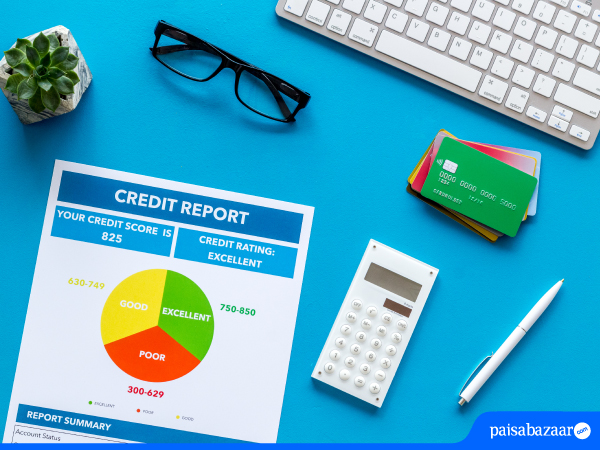5 Common Credit Score Myths That Most People Believe

The credit score determines your creditworthiness which helps financial institutions judge whether you would be eligible for a loan or credit card. You can check your credit score for free from several third-party platforms, or you can also check it through any of the credit bureaus like TransUnion CIBIL, Experian, etc., for a minimal amount. A good credit score not only increases your chances of credit approval, but it can also help you get a loan or any other credit at a lower interest rate. However, a few myths around credit scores make several people take the wrong step, which could lead to a lowered credit score. To keep you from making such mistakes, here are some common credit score myths:
Myth #1- Checking Credit Score Regularly Will Lower It
This is the most common myth; people usually believe checking their credit score can harm it. However, a soft enquiry is raised whenever you check your credit score, which does not harm your score. The credit score is impacted only when a hard enquiry is initiated on your profile, in case a lender pulls your credit report from a credit bureau. Therefore, you can check your credit score as often as possible without worrying about it. Checking your credit score before applying for a loan or credit card is a good practice as it helps gauge your approval chances.
Myth #2- Higher Income means Higher Credit Score
It is a myth that the higher the income, the higher the credit score. The fact, however, is that your income does not have any impact on your credit score. If your income is higher or you have a higher payout, it does not mean your credit score will increase. Your credit score is calculated based on multiple factors like repayment history, length of credit history, credit mix, credit card debt and any other credit product you may have applied for. The highest portion out of all these factors is payment history. Therefore, paying your loan instalments and credit card bills in full and on time is important to improve your credit score.
Read More: 4 Best Credit Cards for bad credit Scores 2023
Myth #3- Credit Score is the Only Factor that Affects Credit Application
Every time you apply for a loan or credit card, the issuer checks your credit score to determine your creditworthiness. However, a credit score is not the only factor affecting your approval chances. The lenders also consider other factors like income, repayment capacity, assets, current debts, investments, job stability and more while scrutinizing your credit application. Your credit score tells how well you manage your credit and helps the lenders decide whether you can handle more debt.
Myth #4- Debit Cards Help in Building Credit Score
This is a terrible myth that handling a debit card well can help you improve your credit score. A debit card does not help you improve or build your credit score. There is no doubt that just like credit cards, you can earn similar privileges on debit cards like rewards, cashback, exclusive deals, lounge access and more, but having a debit card does not affect your credit score. Your credit score is calculated based on your credit products like loans, insurance, credit card, etc. A debit card helps you manage your finances in your bank account but does not contribute towards your credit score.
Myth #5- Having No Debt Helps in Improving Credit Score
People usually think that not having a credit card or loan is a great way to improve your credit score as you will not have any debt. However, this is not true. It is impossible to determine your creditworthiness if you do not have any credit, like a loan or credit card. Being new to credit can sometimes be a barrier while applying for a loan or credit card, as there will be no criteria based on which the lender can evaluate your application. So, taking credit cards or loans and paying your bills in full and on time is recommended to maintain a good credit score.
Myth #6- Credit Score Only Helps Banks and Organizations
A good credit score helps banks and financial institutions and helps people maintain good financial health. It helps you utilize your credit properly. Besides, a good credit score will help you save money on loans. You can get a car or home loan at a lower interest rate. Also, a trustworthy credit score helps you attract better offers and deals on refinancing existing debts, like upgrading your current card or applying for a top-up loan. This way, along with additional benefits, a good credit score helps you manage your finances better.
Apart from these myths, it is important to know the factors that affect your credit score, such as payment history, credit utilization, etc. Use your credit card judiciously, and do not believe the myths.

Pranab Bhandari is an Editor of the Financial Blog “Financebuzz”. Apart from writing informative financial articles for his blog, he is a regular contributor to many national and international publications namely Tweak Your Biz, Growth Rocks ETC.








